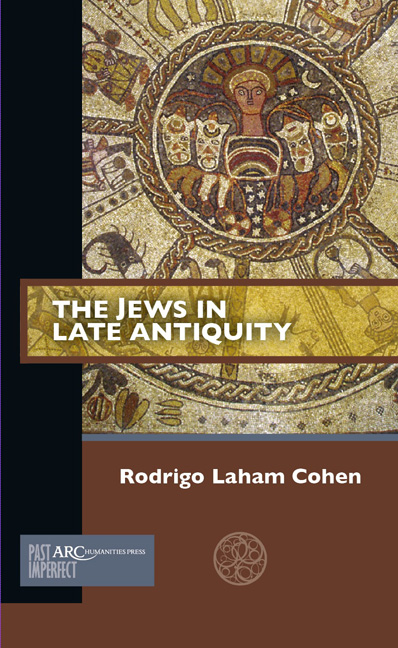Summary
Over the course of these pages we have tried to elaborate on a snapshot of Jewish communities in late antiquity. Due to space concerns, we have not been able to analyze significant Jewish settlements in Syria, Asia Minor, and the Balkans. However, the scope of the regions studied have given a broad view of Judaism in the period.
We have showed the importance of all types of sources when reconstructing Jewish life, namely buildings, artifacts, inscriptions, and Jewish and nonJewish texts. As we are dealing with groups that left scant traces, it is important to employ all the available evidence.
Is it possible to summarize the history of the Jews in late antiquity? As we have seen, our knowledge is imperfect because of the insufficiency of sources. In Italy, we depend heavily on Christian sources, although there are two uncovered ancient synagogues, while in Babylonia there are many Jewish texts, but no significant archaeological remains. In Gaul, only a few inscriptions are available and, again, Christian texts, while in Spain (Christian) legal codes are almost the only avenue available to us in order to find out about the Jews. This disparity of sources makes it difficult to compare distinct regions. As no Jewish texts survived in Western Europe, uncovering the scope of the rabbinization process in the region is a difficult task. The absence of archaeological remains—apart from seals and magic bowls—in Babylonia, makes it hard to contrast the imagined rabbinical society with material sources. Only in the Land of Israel are there a variety of sources that provide a relatively complete view. Nevertheless, even in Palestine, scholars continue to engage in fierce debates around certain issues, such as the strength of the Patriarch or the involvement of the rabbinical movement in the synagogues, among other aspects.
No less important, we know more about the elites than we do about the common people. As is often the case in ancient and medieval times, constructing history from below is not always possible: poor people in antiquity did not have seals, did not always make tombstones for their deaths, and generally did not write (or their texts were not preserved).
- Type
- Chapter
- Information
- The Jews in Late Antiquity , pp. 87 - 89Publisher: Amsterdam University PressPrint publication year: 2018



